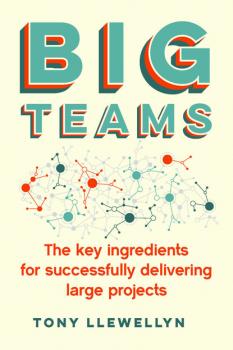ТОП просматриваемых книг сайта:
Tony Llewellyn
Список книг автора Tony LlewellynАннотация
This book is about the ‘how’ of managing behavioural change in project teams. Much of the project management literature published over the last five years urges the reader to become better leader by improving their soft skills. Few books however actually explain how to apply a people-oriented approach in practice. This book fills the gap, setting out a wide range of step-by-step exercises to use with groups that will specifically help to shape and maintain the desired behavioural norms.The book provides 55 tools and techniques, aligned with a model of team coaching derived from scientific literature on team performance as well as the author's own extensive practice and research. Each tool sits within one of five layers or stages of team development. In order to provide the reader with some context, the book will have two preliminary chapters. The book is also supported by a website with additional resources.Tony Llewellyn has worked in the major project space for 35 years, most recently focused specifically on behavioural change in groups. In his discussions with project managers he has found a consistent desire to understand how to put the theories of human team dynamics into practice. Here he shares the tools that he has developed and explains them in a way that is both theoretically credible and practically useful.
Аннотация
This is a book about working with large teams of people. Whether your team involves 30 people or 3,000, the organizational dynamics are significantly different for a project manager used to dealing with smaller teams. As the project scales up in size and complexity, the processes and skills required change. As project leader, your focus moves from the technical aspects of project delivery to enabling, facilitating and integrating the different sub teams into a cohesive whole. Big Teams examines the research on team dynamics and the latest thinking on leadership in a project or program environment. It features stories and case studies based on interviews with project leaders from a range of major projects and programs. Structured around three core themes – Alignment, Engagement, and Resilience – it gives you invaluable, practical guidance on setting up and running an effective team of teams.As with all Tony Llewellyn's books, Big Teams is written in an accessible style with the focus on real-world application, but the academic underpinning is rigorous and will be a useful reference for any student studying project leadership.


